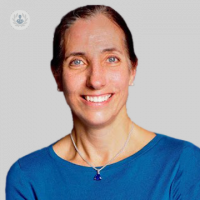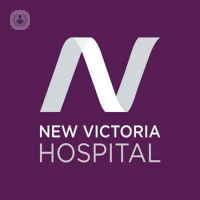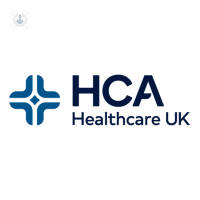What is breast asymmetry?
Women with breast asymmetry have breasts that are different in shape, position or size. In fact, the great majority of women have mild breast asymmetry. However, when the asymmetry is significant, it may adversely affect the woman’s body image, her self-esteem and confidence.
Breast asymmetry can be classified into three types:
Anisomastia: a significant difference in the volume and size of the breasts.
Anisothelia: a difference between the nipples and areolas.
Combined asymmetry: anisomastia and anisothelia.
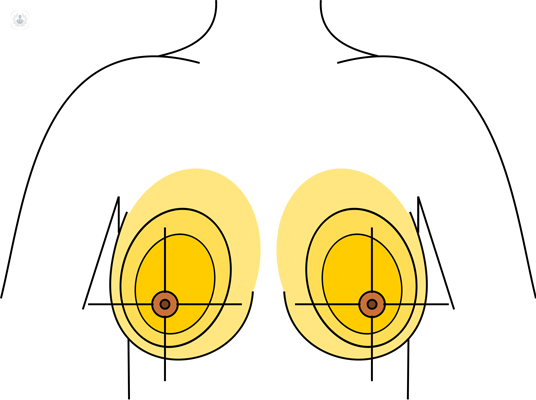
What are the symptoms of breast asymmetry?
The symptoms of breast asymmetry are essentially aesthetic, manifesting as a difference in, for example, shape, size, developmental stage or fat percentage. In the most serious cases of breast asymmetry, there may even be a difference in osteomuscular structure or the breasts are completely different.
Causes of breast asymmetry
Significant breast asymmetry has several possible causes: it may be linked to a breast condition, a developmental problem, a hormonal problem, an unknown syndrome, an injury or periods of significant bodily change such as pregnancy or breastfeeding.
One of the diseases linked to breast asymmetry is breast cancer. Hence, all patients with breast asymmetry are advised to perform breast self-examination to detect any warning signs in a timely manner.
Can it be prevented?
Breast asymmetry appears while the breasts are developing during puberty. It cannot be prevented, except if it occurs as a secondary effect of a growth disorder that is diagnosed early. There are no measures you can take to prevent breast asymmetry.
What is the treatment?
The only solution to breast asymmetry is plastic, aesthetic and reconstructive surgery. The surgical techniques used depend on the surgeon and on the patient’s characteristics. However in many cases, breast augmentation, breast reduction or a combination of both will be done.
11-13-2012 04-26-2023Breast asymmetry
Mr Venkat Ramakrishnan - Plastic surgery
Created on: 11-13-2012
Updated on: 04-26-2023
Edited by: Karolyn Judge
What is breast asymmetry?
Women with breast asymmetry have breasts that are different in shape, position or size. In fact, the great majority of women have mild breast asymmetry. However, when the asymmetry is significant, it may adversely affect the woman’s body image, her self-esteem and confidence.
Breast asymmetry can be classified into three types:
Anisomastia: a significant difference in the volume and size of the breasts.
Anisothelia: a difference between the nipples and areolas.
Combined asymmetry: anisomastia and anisothelia.

What are the symptoms of breast asymmetry?
The symptoms of breast asymmetry are essentially aesthetic, manifesting as a difference in, for example, shape, size, developmental stage or fat percentage. In the most serious cases of breast asymmetry, there may even be a difference in osteomuscular structure or the breasts are completely different.
Causes of breast asymmetry
Significant breast asymmetry has several possible causes: it may be linked to a breast condition, a developmental problem, a hormonal problem, an unknown syndrome, an injury or periods of significant bodily change such as pregnancy or breastfeeding.
One of the diseases linked to breast asymmetry is breast cancer. Hence, all patients with breast asymmetry are advised to perform breast self-examination to detect any warning signs in a timely manner.
Can it be prevented?
Breast asymmetry appears while the breasts are developing during puberty. It cannot be prevented, except if it occurs as a secondary effect of a growth disorder that is diagnosed early. There are no measures you can take to prevent breast asymmetry.
What is the treatment?
The only solution to breast asymmetry is plastic, aesthetic and reconstructive surgery. The surgical techniques used depend on the surgeon and on the patient’s characteristics. However in many cases, breast augmentation, breast reduction or a combination of both will be done.


Breast implants vs. breast uplift
By Mr Navid Jallali
2024-11-21
Breast enhancement surgery is the UK’s most popular aesthetic surgical procedure with over 13,000 operations carried out per year. Breast enhancement surgery can come in the form of implants, breast uplift (mastopexy) or a combination of both (augmentation mastopexy), but which of these is best for you? Expert consultant plastic surgeon Mr Navid Jallali MD FRCS (Plast) is here with some information and advice about these procedures. See more


What is oncoplastic breast surgery, and who is the ideal candidate?
By Dr Tasha Gandamihardja
2024-11-20
What is oncoplastic breast surgery, and who is the ideal candidate? Find out in this article here as revered consultant oncoplastic breast surgeon, Dr Tasha Gandamihardja, reveals the answers to the all-important questions relating to oncoplastic breast surgery. See more
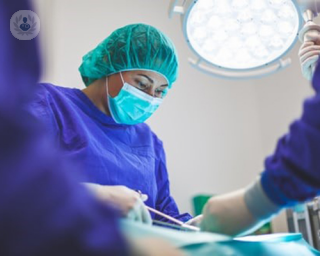

Am I eligible for breast reduction surgery?
By Mr Kelvin Ramsey
2024-11-20
Breast reduction surgery can be a truly life-changing operation for many women who choose to reduce the size of their breasts. Here, renowned consultant plastic surgeon, Mr Kelvin Ramsey, explains who is eligible to undergo this operation and provides all the information you should know. See more


What should I do if I have a family history of breast cancer?
By Dr Shiroma De Silva-Minor
2024-11-19
Here, in one of our latest medical articles, highly skilled, experienced, and qualified consultant medical and clinical oncologist, Dr Shiroma De Silva-Minor, provides us with important pieces of advice to patients who have a family history of breast cancer. See more
Experts in Breast asymmetry
-
Mr Venkat Ramakrishnan
Plastic surgeryExpert in:
- Breast augmentation
- Breast reconstruction
- Breast reduction
- Breast asymmetry
- Blepharoplasty
- Tummy tuck (abdominoplasty)
-
Mr Miles Dickson
Plastic surgeryExpert in:
- Breast reconstruction
- Breast augmentation
- Breast reduction
- Breast lift or mastopexy
- Tummy tuck (abdominoplasty)
- Breast asymmetry
-
Mr Jonathan Duncan
Plastic surgeryExpert in:
- Breast augmentation
- Breast reduction
- Breast lift or mastopexy
- Breast reconstruction
- Breast asymmetry
- Tummy tuck (abdominoplasty)
-
Ms Shweta Aggarwal
Plastic surgeryExpert in:
- Breast implant removal surgery
- Breast reduction
- Breast lift or mastopexy
- Breast asymmetry
- Breast lumps
- Skin cancer
-
Miss Caroline Payne
Plastic surgeryExpert in:
- Breast reduction
- Breast augmentation
- Breast asymmetry
- Breast lift or mastopexy
- Tummy tuck (abdominoplasty)
- Brachioplasty (arm lift)
- See all

The Highfield Hospital - part of Circle Health Group
The Highfield Hospital - part of Circle Health Group
Manchester Road, Rochdale, Lancashire, OL11 4LZ
No existe teléfono en el centro.
By using the telephone number provided by TOP DOCTORS, you automatically agree to let us use your phone number for statistical and commercial purposes. For further information, read our Privacy Policy
Top Doctors

New Victoria Hospital
New Victoria Hospital
184 Coombe Lane West, Kingston upon Thames, KT2 7EG
No existe teléfono en el centro.
By using the telephone number provided by TOP DOCTORS, you automatically agree to let us use your phone number for statistical and commercial purposes. For further information, read our Privacy Policy
Top Doctors

The Harborne Hospital - part of HCA Healthcare
The Harborne Hospital - part of HCA Healthcare
Mindelsohn Way, B15 2FQ
No existe teléfono en el centro.
By using the telephone number provided by TOP DOCTORS, you automatically agree to let us use your phone number for statistical and commercial purposes. For further information, read our Privacy Policy
Top Doctors
-
The Highfield Hospital - part of Circle Health Group
Manchester Road, Rochdale, Lancashire, OL11 4LZ , RochdaleExpert in:
- Cardiology
- Orthopaedic surgery
- Plastic surgery, reconstructive and aesthetics
- Dermatology
- Diagnostic Imaging
- Endocrinology
-
New Victoria Hospital
184 Coombe Lane West, Kingston upon Thames, KT2 7EG, South LondonExpert in:
- Cardiology
- General Surgery
- Orthopaedic surgery
- Breast augmentation
- Pain management
- Spine
-
The Harborne Hospital - part of HCA Healthcare
Mindelsohn Way, B15 2FQ, BirminghamExpert in:
- Digestive
- Cancer
- Orthopaedic surgery
- Thoracic Surgery
- Diagnostic Imaging
- Obstetrics and Gynaecology
- See all
- Most viewed diseases, medical tests, and treatments
- Hormone therapy
- Migraine
- Nutrition
- Weight loss injections
- Endermologie
- Polynucleotides
- Nipple discharge
- Abdominal pain
- Endovenous laser treatment (EVLA)
- Minimal access surgery (keyhole surgery)




